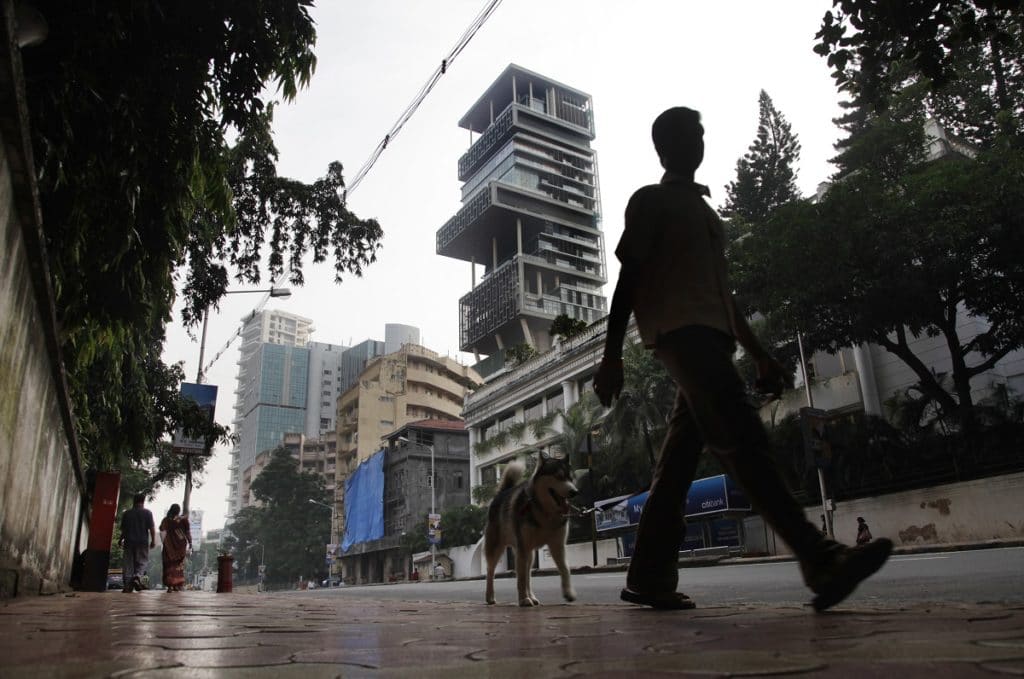Indian weddings are known for being long and elaborate. But by any measure, the weeklong celebrations for Isha Ambani, the daughter of perhaps Asia’s richest man, are on another level — or planet — of extravagance.
Ambani, 27, is to be married to her childhood friend Anand Piramal, 33, a real-estate developer and scion of another of India’s most prominent business families, on Wednesday in Mumbai. Their weeklong bash is said to include at least five events, and there has been much speculation about the cost of luxury hotel rooms, chartered flights, catered meals and entertainment. Bloomberg reported an estimate of $100 million, but a person close to the family has disputed that number. Calculations based on publicly available prices suggest a bill closer to $15 million.
Prince Harry’s wedding to the American actress Meghan Markle cost $40 million in a country where labor costs are much higher. But whatever the price, it would be small change for the father of the bride, Mukesh D. Ambani, a tycoon with an estimated net worth of $41.6 billion.
Ambani’s businesses, in oil, telecoms, chemicals, textiles, technology and food, touch the lives of every Indian, and his daughter’s wedding is the subject of intense public fascination.
Indian weddings have in recent years become a symbol of the country’s new moneyed elite, said James Crabtree, the author of “The Billionaire Raj: A Journey Through India’s New Gilded Age.”
“Of course, a wedding of the pre-eminent corporate dynasty of modern Indian history is going to be a very big and very extravagant deal,” he said.
The pre-wedding festivities hosted by Ambani and his wife, Nita, began on Saturday in Udaipur, a north Indian city famous for its palaces, and drew celebrities from around the world.
The A-list guests included former secretaries of state Hillary Clinton and John Kerry, who reportedly danced to bhangra, a type of pop music from India’s Punjab region.
Oh, and Beyoncé flew in to perform a 45-minute private concert, with several costume changes.
(At one point, Bollywood megastar Salman Khan appeared on stage behind members of the Ambani family, prompting some to joke on Twitter that he had been relegated to the role of backup dancer.)
Saturday’s event overwhelmed Udaipur, as the Ambanis’ guests took over the city’s hotels and clogged its tiny airport. Even Mumbai’s international airport set a record for traffic on Saturday, as dozens of private chartered flights made their way north.
One wedding guest, who did not want to be identified discussing the Ambani family’s private affairs, said that invitations came in a Dolce & Gabbana box, adorned with pink and gold lace and detachable chains that could be worn as jewelry.
She added that the Udaipur event appeared to have about 2,000 guests. One highlight was a Bollywood dance number that the bride’s mother, Nita, performed with her two sons, Akash and Anant.
Mukesh Ambani’s father, Dhirubhai Ambani, was a schoolteacher’s son who created a business empire in India at a time when most large-scale private enterprises there were stifled by government controls. His firm, Reliance Industries, eventually came to be seen as the face of India’s industrial renaissance.
When Dhirubhai Ambani died, his sons Mukesh and Anil fought over control of the empire. Mukesh ultimately got the petroleum and plastics business and Anil got telecommunications and financial services.
Mukesh leveraged his portion of Reliance to build a new phone carrier, Reliance Jio, that has upended the industry by offering unlimited calls and lots of data for $2 a month. The price war devastated Anil’s telecom company.
Setting aside their business rivalries, the brothers jointly greeted wedding guests in Udaipur.
The wedding ceremony is planned for Wednesday at Mukesh Ambani’s 27-story home, which towers over southern Mumbai and includes a six-level parking garage and three helipads. (Clinton dined at the tower in March while visiting the city to speak at a conference, the Indian news media reported.)
The celebrations this week will also include a ceremony at Piramal’s father’s home in Mumbai, and a reception at JioGarden, an event space in Mumbai built by Ambani’s company.
Not everyone in India is excited; some critics said on social media that the extravaganza was unseemly in a country with so much poverty.
A report last month by the Paris-based World Inequality Lab found that the richest 10 percent of India’s population controlled 63 percent of its wealth in 2012, up from 45 percent in 1981.
Kai Schultz contributed reporting.
c.2018 New York Times News Service
